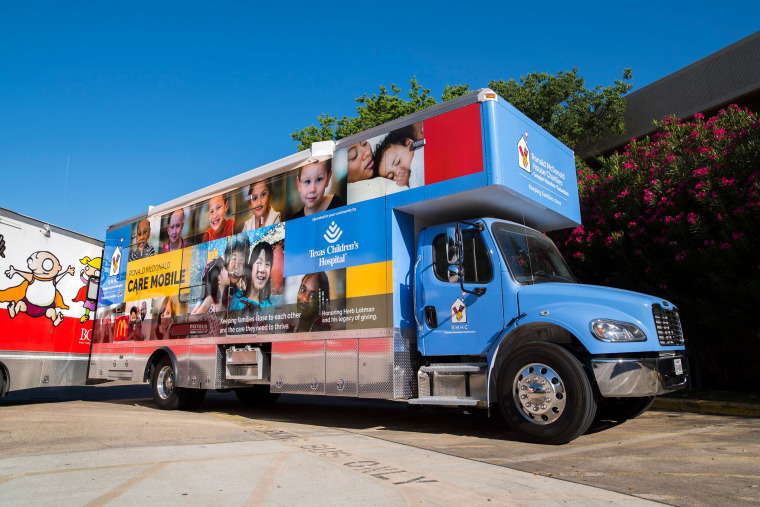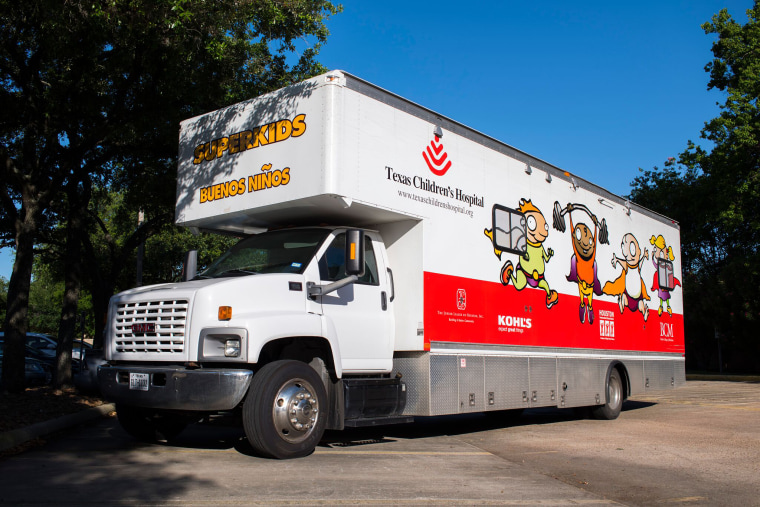HOUSTON — The manifestations of post-traumatic stress disorder in children and teens who lived through Hurricane Harvey are impossible to miss. Juan Sazo, a senior social worker and therapist with Texas Children's Hospital Trauma and Grief Center, treats young patients in the greater Houston area who were affected by the storm.
"Patients share their hypersensitivity to the sound of rain, weather updates on news broadcasts, emergency broadcasting system alerts, overcast skies, and other weather-related reminders," says Sazo.
But more than the ongoing symptoms, what worries Sazo and other hospital officials is the lasting effect that trauma has on developing brains.
"When a child is experiencing post-traumatic stress and feels as if the threat is still active and ongoing, they are not as capable of utilizing the parts of the brain they would normally access to do school-related tasks such as taking notes, being mindful of the content being taught, long-term planning for homework or recall information," Sazo said.
For that reason, Texas Children's now deploys highly trained clinicians to the two mobile units that since 2000 have provided health care services for children and teenagers, including immunizations, nutrition, education and referrals to medical and social resources.
Dr. Julie Kaplow, the trauma's center director, notes that although it has been more than two years since the storm ravaged the city, there are strong reasons why the psychological wounds are just now been treated.
"The PTSD and grief are showing up more now because in the immediate aftermath after a natural disaster, people go into survival mode," Kaplow said. "Parents may not be in tune to the child's mental health when they are fixated on getting their home rebuilt, or how they are going to get food or shelter."
The two mobile units with specially trained clinicians periodically visit Liberty High School, Wisdom High School and Benavidez Elementary School — three Houston Independent School District campuses identified as having the greatest need.

The collaboration, according to Gwendolyn Johnson, the school district's director of Health and Medical Services, offers the remarkable element of providing care to children where they are.
"Through this partnership, we are able to serve this community better and ensure that traumatized or grieving children who may not be able to access care at the hospital have the ability to receive best-practice mental health care — the same quality of care Texas Children's provides to all of their patients," says Johnson.
The program is made possible through the Harvey Resiliency and Recovery Program and the Center for Disaster Philanthropy.
Therapists at the mobile units are bilingual, and all assessment tools and treatment manuals are available in Spanish.
For Sazo, the therapy also takes into consideration the patient's cultural elements.
"The lexicon used to describe natural disasters does not translate the same to Spanish, so utilizing more culturally-appropriate language is key. Also, it's important to understand that Latino children may have been at-risk due to immigration status or the perceived danger that comes with seeking support if they are undocumented," he said. "A major component to consider during treatment is understanding valid concerns the family, as a whole, could be going through."
The mobile units have a screening tool that asks parents if the child has experienced a traumatic event.
"If the answer is yes," Kaplow said, they get introduced to the trauma and grief therapist right away, "and the therapist asks the parent if they are comfortable with us asking the child more questions about their experience."
The team of therapists evaluates each child's symptoms in an initial assessment and checks on their symptoms every four to six weeks to make adjustments as necessary. Additionally, once a child has completed their therapy, the team brings them back six months later and a year later, to assess them yet again.
This story appears as part of coverage for “NBC News Learn Presents: Education Now Houston,” a two-hour live community event supported by the Chan Zuckerberg Initiative. For more information, go to nbcnews.com/learnhouston.
Follow NBC Latino on Facebook, Twitter and Instagram.

